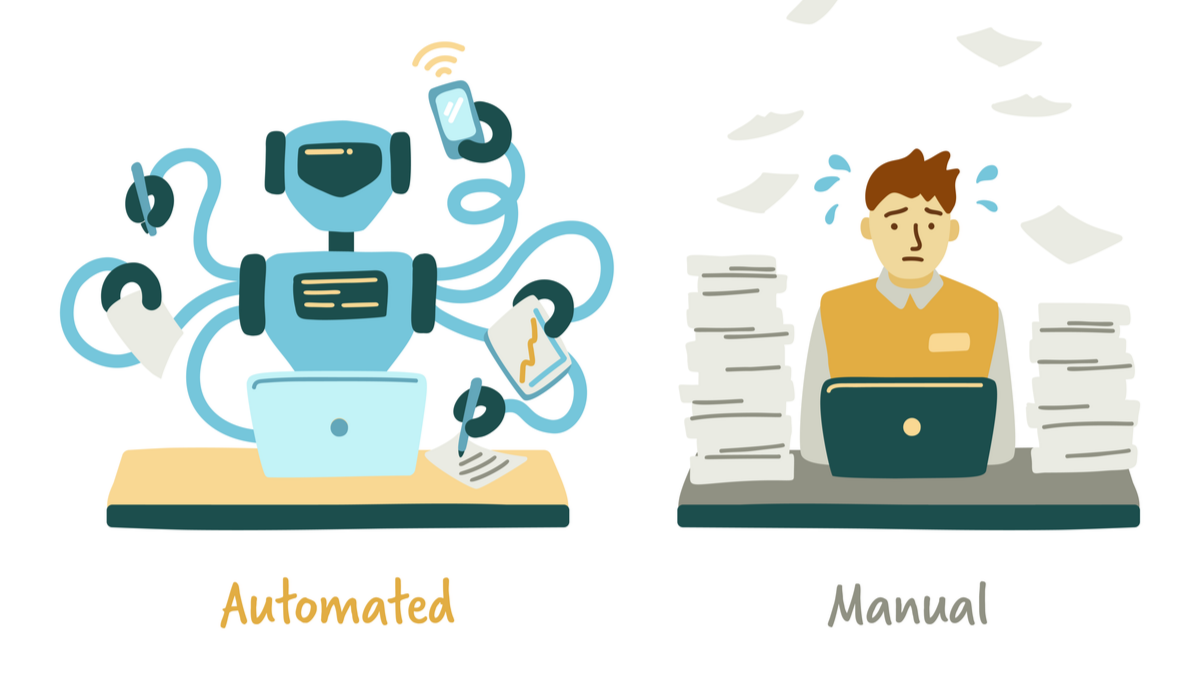
Automation has transformed the business landscape by replacing manual labor with technological advancements. It has revolutionized how businesses operate and is expected to become even more prevalent in the future. Automation is the process of performing tasks with minimal human intervention by utilizing robots, analytics, and software. This technology can be used to accomplish a wide range of tasks such as administrative duties, customer service, production, and more. The benefits of automation are significant, including increased efficiency, reduced operational costs, and faster response times due to more accurate and timely data. It also helps companies develop high-quality products and services quickly while ensuring business compliance and minimizing risks. Essentially, automation is an invaluable tool that allows companies to remain competitive in today's ever-evolving business world.
Importance of Automation
Automation technology is crucial for the efficient operation of many businesses, including manufacturing, finance, and retail. Companies have realized substantial gains through the use of automation, such as in supply chain management, where automated systems enable companies to monitor inventory, predict consumer demand, and expedite shipments on a much larger scale than traditional manual processes. Additionally, automated financial technology allows faster transaction times and immediate payments at checkout counters and online portals for a better customer experience. Companies are also utilizing automation to automate their marketing activities by creating personalized messages that respond to customers' preferences and buying behavior. With increased efficiency, businesses can reduce costs while still meeting their goals at a higher level of accuracy.
Advantages of Automating Business Processes
The advantages of automating various business processes are immense, particularly when it comes to essential business processes. Automating mundane and repetitive tasks, such as data entry, significantly reduces the time needed to complete these tasks while reducing errors and eliminating the need for manual checking. By automating these tasks, companies can improve their efficiency and productivity, relying on automated systems that are available around the clock. Furthermore, automation can help companies save on costs by eliminating the need to hire an additional employee to cover off-hours. Automating specific processes also creates a more standardized output that consistently meets customer expectations, providing quick responses while still maintaining a high level of quality.

Technologies Used in Automation
Automation technologies offer many benefits for businesses, allowing them to streamline processes and increase efficiency. Robotic process automation (RPA) and artificial intelligence (AI) are two technologies that businesses can utilize to the fullest extent. RPA refers to software applications that mimic human actions to manage routine tasks, such as customer data entry or processing orders. AI can learn from data sets and detect patterns to make decisions and take action autonomously with little or no human intervention. Natural language processing (NLP) is another standard automation tool that uses computational techniques to communicate between machines and humans, enabling devices to understand humans' spoken commands and written text. As these technologies become increasingly accessible, businesses can ensure that they are at the forefront of automation innovation.
Planning and Implementing an Automation Strategy
Several successful businesses have implemented automation technology, from online retail giants to corporate settings. Amazon, for example, has effectively harnessed automation with their efficient warehouses that utilize robotic technology to identify, retrieve, and sort items quickly, helping them keep up with customer demand. In the corporate world, Microsoft has used automation to create Dynamics 365 Finance, a system that uses artificial intelligence to process accounting documents quickly. These are just a few examples highlighting how businesses of all sizes have found success by leveraging automated solutions.
To plan and implement an effective automation strategy, it is important to understand the organization's needs fully. Questions such as what tasks could be automated to benefit from greater efficiency, what processes should remain manual to ensure accuracy, and how the automated process can be integrated with existing systems should be asked. Once the needs and goals are clear, designing an implementation plan that outlines how systems and processes must be adapted for automation is essential. It is important to set realistic goals for every implementation step and track progress throughout the process. A testing phase should be included as part of the automation